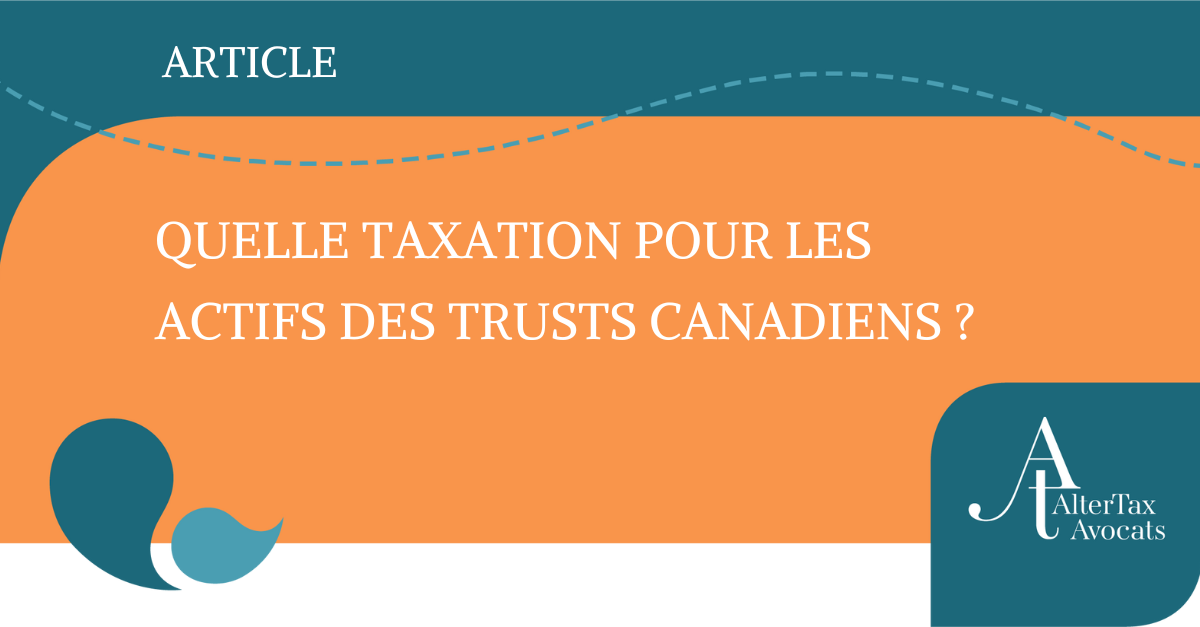For several years now, the French tax authorities have been looking into a number of cases of potential tax fraud involving large French fortunes. They are said to have used Canadian trusts, via the Blue Bridge wealth management company, to evade French wealth tax.
However, in ruling no. 21/10189 of February 6, 2023, the Paris Court of Appeal held that the assets of a Canadian trust were only taxable in Canada and not in France, thus ruling out the possibility of tax fraud. Explanations.
The facts behind the case
During a tax audit, the DGFIP found that a French taxpayer had set up a trust in Canada in 1986. It therefore notified him of a proposed rectification for the years 2012 to 2015 in respect of the taxation of assets making up a trust governed byarticle 990 J of the French General Tax Code (CGI).
Following the trustee’s challenge, the case was brought before the Paris court. The latter, in a ruling dated March 5, 2021, followed the reasoning of the DGFIP and ordered the trustee to pay the sui generis levy under article 990 J of the CGI.
As a reminder, the sui generis levy on trusts was created by the Loi de finances rectificative pour 2011 n° 2011-900 of July 29, 2011 and has been applicable since 2012. It therefore post-dates the Franco-Canadian Tax Convention of May 2, 1975.
It is designed to penalize failure to declare assets placed in a trust for wealth tax (ISF) purposes. The amount of the levy depends on the net market value of the assets and rights making up the trust on January1 of the tax year, and the rate of the levy, which corresponds to the highest rate of the ISF, now replaced by the IFI(article 977 of the CGI).
In ruling no. 21/10189 of February 2, 2023, the Paris Court of Appeal overturned this decision and applied the Franco-Canadian Convention of May 2, 1975 on the avoidance of double taxation and the prevention of fiscal evasion with respect to taxes on income and capital.
French-Canadian tax treaty or general tax code?
Article 55 of the Constitution of October 4, 1958 provides that: “Treaties or agreements duly ratified or approved have, from the time of their publication, an authority superior to that of laws, subject, for each agreement or treaty, to its application by the other party”.
International law therefore takes precedence over national law. Where an international tax treaty exists, such as the Franco-Canadian Convention, it must be applied, provided that the situation in question falls within the scope of the international text.
The Convention between France and Canada for the Avoidance of Double Taxation and the Prevention of Fiscal Evasion with Respect to Taxes on Income and on Capital applies:
- To taxes on income and on capital levied on behalf of each of the Contracting States;
- “To persons who are residents of one or both of the contracting States” (article1 of the Franco-Canadian Convention).
But can a trust be qualified as a “person”?
Article 3 §1 b) of the Tax Convention states that “The term ‘person’ includes individuals, companies and any other body of persons and, in the case of Canada, partnerships, estates and trusts”. Trusts are therefore expressly qualified as persons under the Franco-Canadian Tax Convention.
Thus, according to the trustee and the Paris Court of Appeal, which followed his reasoning, the Canadian trust is a person, and as such benefits from the rules set out in the Franco-Canadian Tax Convention.
CGI ruled out for taxation of Canadian trust assets
As the Franco-Canadian tax treaty is applicable to the case in point, the Paris Court of Appeal deduced that the assets of the Canadian trust are taxable in Canada (article 22 §6 of the treaty). They cannot therefore be subject to double taxation in France under the levy provided for in article 990 J of the CGI.
The Court of Appeal also noted that the trust had been set up in good faith in Canada in 1986, when the ISF did not exist in France. It was therefore not possible to accuse the taxpayer of any desire to evade a tax that did not exist when the trust was created.
The Paris Court of Appeal therefore rejected the application of the French General Tax Code and relieved the trustee of all French taxation.
